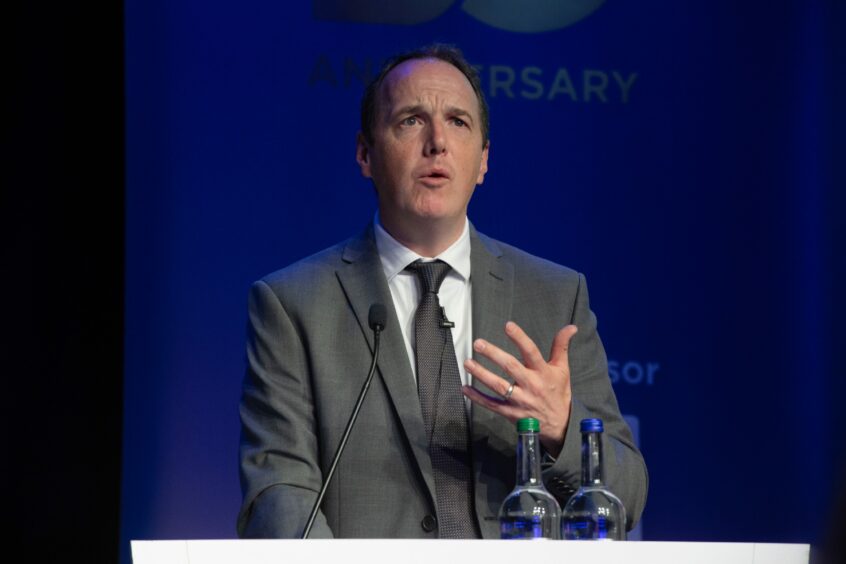
As Offshore Europe celebrates its 50th anniversary, industry leaders offered thoughts on what the event could look like in another fifty years.
Aberdeen’s flagship oil and gas conference has come some way since its early days as a tented affair in the Chemistry car park of the University of Aberdeen in 1973. Who present then might have imagined tens of thousands people attending a sprawling campus over the course of nearly a week?
It was therefore with some trepidation that a panel of industry experts responded to an audience member’s question on their hopes for the event in another fifty years.
Speaking during a session on Tuesday on how the strengths of the oil and gas sector could enable the energy transition, Net Zero Technology Centre (NZTC) chief executive Myrtle Dawes suggested Offshore Europe 2073 may be an even broader church than it is today.
“I suspect that we’ll have some different industries and sectors around the table,” she said.
“By 2073 I suspect that nuclear fusion will have come into play, and they will be talking about how they are supporting the overall energy mix.”
She suggested the UK would be “completely connected” from an electricity perspective thanks to greater HVDC links, and that the scale of digital and data technologies too would be very different.
“If we’re not at net zero then, I’m not sure what we will be talking about,” she added.
In addition, she posited whether the sector might adopt a greater focus on sustainability post-2050.
“I think this journey to 2050 will be quite rough. We might get to net zero, but we won’t be sustainable from a lot of perspectives because it will take a lot of effort to do that.”
Pace of change
Laura Braidwood, skills project manager at ETZ Ltd, predicted that attendees looking back at 2023’s event would be most astonished by the speed of transition.
“I think the pace of change is what’s going to be most remarkable by 2073,” she said.
“We’ll have seen such huge technology developments, aspects of technology that will change our lives and how we learn. The jobs that we’re doing today might have the same job title but the day-to-day roles will have been revolutionised – and I certainly hope we are sitting with a net zero banner next to Scotland’s name.”
‘No silver bullet’
“I don’t have a clue what things will look like in 2073 and I think that’s a good thing,” offered North Sea Transition Authority boss Stuart Payne.
Yet his projections also came with a warning for today.
“If we celebrated people who set massive targets less and people who delivered them more we might make faster progress,” he ventured.
“But I do hope it will be a place where net zero has been long since achieved.
“I also hope it’s a place where from a D&I point of view…we will have taken all the good bits from this industry and left behind all the other stuff.”
And while the energy landscape is sure to be radically different, he was confident that future systems would manage a similar balancing act to today.
“What I do think will be true in terms of things like the transformation of nuclear is that there still will unlikely be a silver bullet.
“You are still going to need a balanced diet in terms of your energy mix. You’re still going to need to have different things for different occasions and different challenges – and to have a system that talks to each other will be no less important in 2073 that it is now.”
In the meantime, the sector used the event to reiterate that the journey to net zero is indeed a gradual transition – and will not be made overnight.
It will be up to the delegates of Offshore Europe 2073 to look back on how successful that transition is.
Recommended for you
